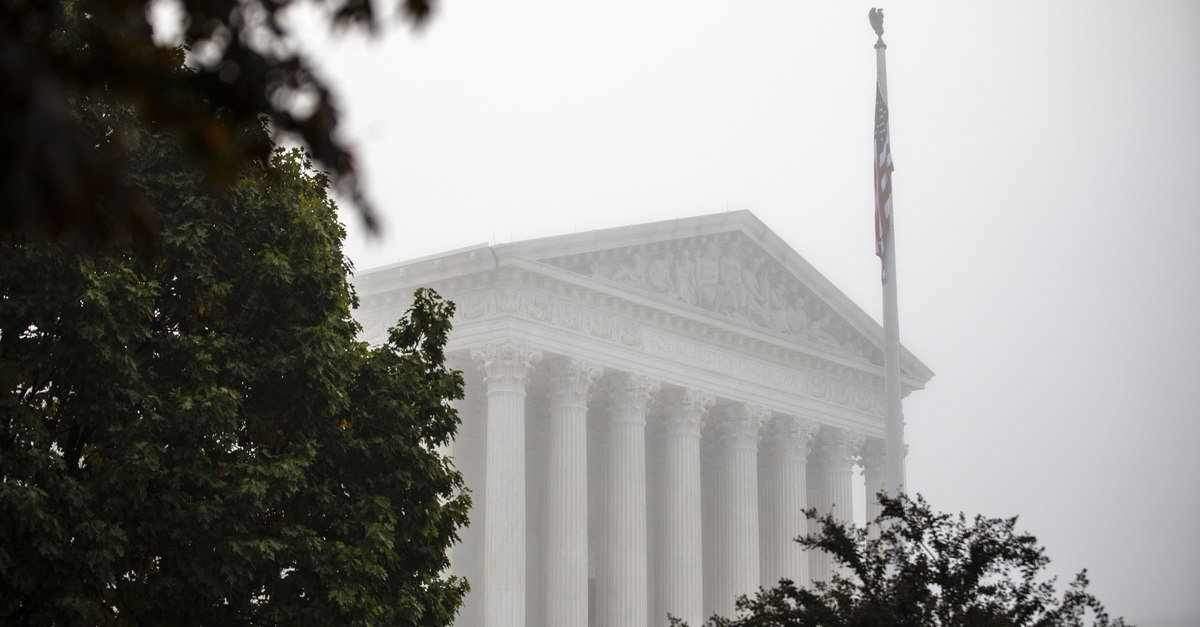
The Supreme Court of the United States heard oral arguments Tuesday in a case about the Federal Communications Commission’s (FCC) rules regulating media ownership. The Court’s ruling may determine who is permitted to own local newspapers and radio and television stations — a decision that could mean major impact on the diversity of viewpoint represented in media.
The two consolidated cases are Federal Communications Commission v. Prometheus Radio Project and National Association of Broadcasters v. Prometheus Radio Project. The arguments before the Court Tuesday centered around the impact the FCC’s change would have on women and minority-owned businesses, and the method by which the FCC considered relevant data before making the change.
FCC rules regulate the number of local television or radio stations one entity can own within the same market. There are also “cross-ownership” rules that disallow the same entity from owning both a daily newspaper and a radio or television station in the same market. The rules, however, are subject to FCC review every four years, to determine whether the public interest might demand that they are repealed or modified.
Responding to changes in overall media landscape, the FCC did just that. In both 2002 and 2006, the FCC chose to repeal and relax some of these media ownership rules. However, an advocacy group supporting community radio stations called Prometheus Radio Project brought a lawsuit to challenge the FCC’s decision. Prometheus argued that diversity of ownership is important to serve the public interest, and allowing the same entities to hold multiple broadcast businesses would ultimately harm women and minority-owned businesses.
The Third Circuit sided with Prometheus, vacating the FCC’s order on the grounds that it acted arbitrarily and capriciously in repealing rules without enough analysis about how the change would affect ownership of broadcast media by women and racial minorities.
The FCC argues that cross-ownership rules have become obsolete. Traditional media companies have been weakened by competition from the omniscient and ever-present Internet, and social media companies have provided platforms for countless more voices than could have been portrayed during a 1970s or 1980s era news broadcast. Cross-ownership rules and other ownership caps were policy decisions based on old technology: a given market could only handle a limited number of full-power television stations without analog signals overlapping. Transmission capabilities increased as technology moved from vacuum tubes to solid state electronics, but the scarcity of channels for speech prior to the Internet led to a myriad of rules aimed at protecting access to the “public” airwaves. Per the FCC, those rules are no longer necessary.
Prometheus argues that the FCC’s decision-making process had been “deeply flawed.” In part, Prometheus points to inconsistency in the FCC’s ideology. In recent years, the FCC has both decided that cross-ownership rules do and do not promote diverse ownership, changing its position based on various data.
The question on appeal to SCOTUS is a narrow one: whether the Third Circuit’s finding that the FCC had been arbitrary and capricious in abandoning its cross-ownership rules was in error.
Tuesday’s oral arguments felt at times like an economics seminar. Justice Stephen Breyer repeatedly raised the point that rules which favor small businesses (and limit cross-ownership) generally help women and minority-owned businesses. Fewer companies in the market means that market is harder to enter — a reality that tends to disadvantage women and minority-owned businesses, explained Breyer.
The FCC, however, argued that the cross-ownership restrictions do not necessarily help those businesses. Furthermore, Deputy Solicitor General Malcolm Stewart argued, the FCC does other things to assist and encourage women and minority-owned businesses.
Justice Clarence Thomas pressed Helgi Walker, the attorney for the National Association Broadcasters, to raise an example of another time when the FCC used structural ownership rules to advance the interest of promoting women and minority owned businesses. Thomas pointed out that the FCC uses direct means, and not ownership rules, to help those businesses. (Walker, who once clerked for Thomas, penned an opinion piece for Fox News which extolled his virtues last February.)
Justices Brett Kavanaugh and Amy Coney Barrett gave the FCC a chance to clarify the procedural rules that govern this aspect of the rule-making process. “Does the FCC have to consider the effect on minority and women ownership?” asked Kavanaugh. Barrett followed up, asking “do you see a difference between a stated goal of enhancing women and minority ownership and ‘not harming’ that ownership?” Through counsel, the FCC answered that it values both goals, and has long considered them, despite no requirement that it do so.
Ultimately, though the justices provided no clear picture of how they would rule in the case, they appeared at least somewhat unified in their attitude of deference toward the general goal of promoting business interests of underrepresented groups.
“The Court’s questions appeared to show that the Justices understood the core questions that our clients had raised to the Third Circuit,” said Andrew Jay Schwartzman, Senior Counselor for the Benton Institute for Broadband & Society, in a post-argument statement to Law&Crime. “We hope that the Justices will agree that the FCC’s actions were unreasonable.”
The inauguration of Joe Biden Wednesday will mean the FCC will shift to Democratic control. Accordingly, the changes to cross-ownership rules may change yet again.
[image via Samuel Corum/Getty Images]